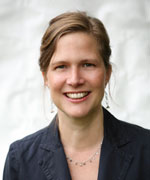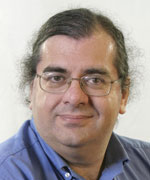Welcome to Educational Designer
1In creating this new journal ISDDE aims to enhance communication, between ISDDE members and with others, so as to forward the goals of the Society:
- improving the design and development process
- building a professional design community
- increasing the impact of professional design on educational practice
We have chosen a web-based format mainly because rich exemplification is often particularly important in describing and analysing design – a web-structure with linked examples communicates better than printed text with inevitably-sparse illustrations. Further, the cost of e-journals is lower both for readers and for authors and their institutions.
Since professional design teams are always busy, often under pressure of deadlines, we decided to make each issue easily digestible, at least for the first read. This first issue contains just three contributions.
We will continue to seek diversity and high quality, reinforced through the refereeing process. The response so far from those in the field of professional design in mathematics and science education has been encouraging. We already have offers from enough authors to fill several issues. The track records of these authors suggest that these contributions will help to stimulate the thinking of the Society’s core membership: designers, design group leaders and those who commission work from them.
A key goal of ISDDE is wider recognition that excellence in design is as rare as it is important for the quality of the student experience in using educational materials. We will continue to feature pieces from individual designers with exceptional track records under the series heading: A designer speaks. Suggestions for those who should be invited are welcome.
We are planning a "Responses" section for brief presentations offering alternative points of view stimulated by contributions in earlier issues.
Needless to say, the design and development of this journal is work in progress. In development terms we regard this as the first trial stage, seeking to learn from rich and detailed feedback so as to make the journal more effective in meeting its goals. We invite you who are reading Educational Designer to provide that feedback, and to consider offering a contribution based on your own work.
We look forward to hearing from you.
Hugh Burkhardt, Chair of the Advisory Board and Editor of this Issue
Susan McKenney, Editor
Faculty of Behavioural Sciences
University of Twente
Twente, Netherlands
Daniel Pead, Design Editor
Shell Centre, School of Education
University of Nottingham
Nottingham NG8 1BB, UK
About the Editors
2Hugh Burkhardt has been at the Shell Centre for Mathematical Education at the University of Nottingham since 1976, as Director until 1992. Since then he has led a series of international projects in the UK and the US, including Balanced Assessment, the Mathematical Assessment Resource Service (MARS), and its development of a Toolkit for Change Agents.
He takes an 'engineering' view of educational research and development - that it is about systematic design and development to make a complex system work better, with theory as a guide and empirical evidence the ultimate arbiter. His core interest is in the dynamics of curriculum change. He sees assessment as one important 'tool for change' among the many that are needed to help achieve some resemblance between goals of policy and outcomes in practice. His other interests include making mathematics more functional for everyone through teaching real problem solving and mathematical modeling, computer-aided math education, software interface design and human-computer interaction.
He graduated from Oxford University and the University of Birmingham where, alongside research in theoretical physics and undergraduate teaching, he first developed his work on teaching the uses of mathematics to help solve everyday life problems. He remains occasionally active in elementary particle physics.
He founded and is Executive Chair of ISDDE and Editor of this Issue.
Susan McKenney is an assistant professor in the Department of Curriculum (Faculty of Behavioral Sciences) at the University of Twente in the Netherlands. Dr. McKenney’s current research and teaching focus on curriculum development, teacher professional development and, often, the supportive role of computers in those processes. Careful design, evaluation and revision of educational improvement initiatives is a recurring theme in her consultancy and research endeavours, most of which are situated in the Netherlands, India or southern Africa.
Daniel Pead is Technical Director of the Shell Centre and MARS, leading all the ICT work of the team. Senior Research Fellow in the University of Nottingham, he managed the work of the problem solving team for the UK Qualifications and Curriculum Authority World Class Tests/Arena project as well as designing its computer-based tasks and learning materials. Currently he is researching a range of options for the computer-based assessment of Mathematics. Earlier he helped design and programmed the videodisc-based World of Number materials for the UK National Curriculum Council. More recently he has contributed to the design and develoment of video-rich professional development materials and interactive learning applets for the Bowland Maths initiative which is now being distributed to schools in England.
He is Secretary of ISDDE and Design Editor of Educational Designer.
Acknowledgement: The pop-up windows used for figures and tables have been implemented using the open-source "ThickBox" utility written by Cody Lindley.


